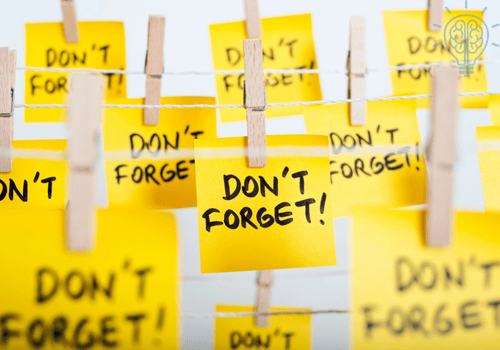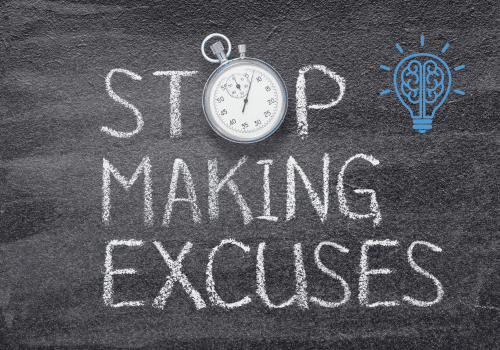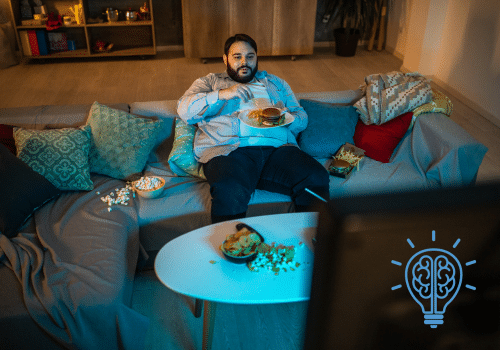“I had the whole day to work on this—why am I still scrambling at the last minute?”
If you’ve ever caught yourself saying this, you’re not alone. Many people struggle with procrastination, distractions, and inefficient work habits. You might blame yourself for lacking willpower, but the truth is: being productive isn’t just about trying harder—it’s about how your brain manages time, motivation, and focus.
Before we jump into solutions, let’s break down why time-wasting happens and how executive functions plays a role in getting things done.
Why Getting Things Done Feels Impossible
Do you ever sit down to work, only to get stuck in a loop of checking emails, scrolling social media, or jumping between small, low-priority tasks? If so, you’re not alone.
For many adults, struggles with productivity aren’t about laziness—they’re signs that executive function skills like planning, focus, and impulse control need support. When these skills aren’t working efficiently, finishing tasks (or even starting them) can feel impossible.
The good news? Productivity is a skill that can be strengthened. By understanding why time-wasting happens, you can learn to take back control.
Reframing the Problem: It’s Not Just Poor Time Management
Instead of asking, “Why am I so bad at managing my time?” try asking:
- ✔️ Am I avoiding a task because it feels overwhelming?
- ✔️ Do I lack a clear plan, making it easy to get distracted?
- ✔️ Is my brain craving instant gratification instead of long-term rewards?
Understanding why you waste time makes it easier to fix.
The Executive Functions Behind Productivity
1. Task Initiation (The “Starting Problem”)
Some people struggle to start tasks, even when they know they’re important.
🧠 Why It Happens:
- Your brain sees big tasks as overwhelming, triggering avoidance.
- Perfectionism makes you overthink before even starting.
- You don’t have a clear entry point, making procrastination easier.
📌 How to Help:
- Use the “2-Minute Rule”—commit to just two minutes of work to break the resistance.
- Break tasks into micro-goals (e.g., instead of “Write a report,” start with “Write one paragraph”).
- Try body doubling—working alongside someone else can boost focus.
2. Time Awareness (Avoiding the “Time Warp” Trap)
Have you ever meant to take a quick break, only to lose an hour? This happens because your brain struggles with time perception.
⏳ Why It Happens:
- Open-ended tasks make it hard to track how long things actually take.
- Distractions pull your attention away, causing you to underestimate lost time.
- The brain craves novelty, making it easier to bounce between tasks instead of staying focused.
📌 How to Help:
- Use time-blocking—schedule tasks into structured blocks of time.
- Set artificial deadlines to create urgency and prevent endless tweaking.
- Use visual timers (like the Pomodoro technique) to stay aware of passing time.
3. Impulse Control (Stopping Distractions Before They Happen)
📱 Why It Happens:
- Instant gratification (like social media) is more rewarding than long-term work.
- Stress or boredom makes distractions feel even more appealing.
- Your brain follows habit loops, making distractions automatic.
📌 How to Help:
- Use the “10-Minute Delay Trick”—if you feel the urge to check your phone, wait 10 minutes. Often, the urge will pass.
- Make distractions harder to access—put your phone in another room or use an app blocker.
- Use “If-Then Planning“—for example, “If I feel the urge to check my phone, then I will take a deep breath and refocus.”
Practical Strategies for Getting Things Done
✅ Time Blocking
- Use Pomodoro timers (25 minutes work, 5-minute break).
- Plan your day in “focus blocks” (e.g., deep work from 9-11 AM).
- Set a “shutdown ritual” to signal when work is done.
✅ Environment Optimization
- Declutter your workspace to minimize visual distractions.
- Use noise-canceling headphones or background sounds.
- Put your phone on airplane mode during focus sessions.
A Next Step: Coaching Can Help
If you’ve tried these strategies and still struggle with time management, executive function coaching can help. We provide personalized tools to strengthen attention, reduce distractions, and build sustainable productivity habits.
📞 Want to learn more? Contact us today for a free discovery call—we’re here to help.




